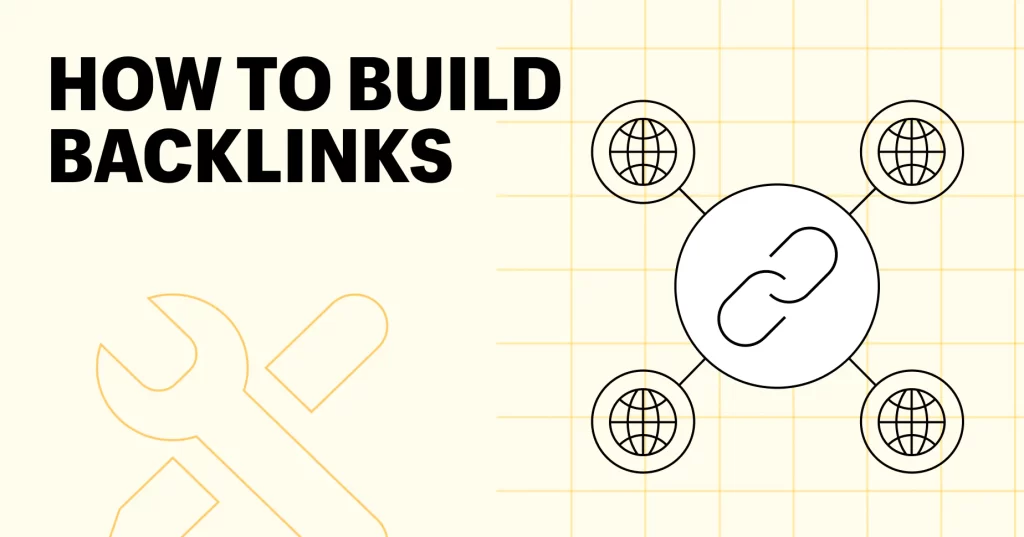Backlinks are an essential element of any successful SEO strategy. They are links from other websites to your website, and they play a crucial role in improving your search engine rankings, driving more traffic to your site, and building your online credibility. However, not all backlinks are created equal, and getting high-quality backlinks can be a challenging and time-consuming task.
In this article, we will explore the importance of backlinks for SEO and how to get them. We will start by explaining how backlinks work and their impact on search engine rankings. We will then dive into the different types of backlinks and the best practices for acquiring them. By the end of this article, you will have a comprehensive understanding of the importance of backlinks for SEO and the strategies you can use to build your backlink profile and improve your website’s online presence. So, let’s get started!
The Importance of Backlinks for SEO
Backlinks are crucial for SEO because they signal to search engines that other websites consider your content to be valuable and authoritative. In other words, if your website has a lot of high-quality backlinks, it will likely rank higher in search engine results pages (SERPs) than websites with fewer backlinks or low-quality backlinks.
Search engines use backlinks to evaluate the relevance, authority, and credibility of a website. The more high-quality backlinks a website has, the more likely it is to be considered an authoritative source on a particular topic. This is because other websites are essentially vouching for the content on your website by linking to it.
Additionally, backlinks can improve your website’s visibility and traffic. When other websites link to your content, they are essentially sending their own audience to your website, which can lead to increased traffic, engagement, and conversions.
Overall, backlinks are an essential component of a successful SEO strategy, and investing in building a strong backlink profile can lead to significant improvements in your website’s search engine rankings and online presence.
Types of Backlinks
Not all backlinks are created equal, and understanding the different types of backlinks is crucial for building a high-quality backlink profile. Here are some of the most common types of backlinks:
- Dofollow vs. Nofollow: Dofollow backlinks are links that search engines follow, and they can pass on link equity and improve your website’s search engine rankings. Nofollow backlinks, on the other hand, instruct search engines not to follow the link, and they do not pass on link equity.
- Internal vs. External: Internal backlinks are links from one page on your website to another page on the same website. External backlinks are links from other websites to your website.
- Editorial vs. Non-editorial: Editorial backlinks are links that are given naturally by other websites because they find your content valuable and relevant. Non-editorial backlinks are links that you acquire through tactics such as paid links, link exchanges, or spammy directories.
It’s important to note that not all backlinks are equally valuable. High-quality backlinks are typically dofollow, external, and editorial, and they come from reputable websites that are relevant to your niche or industry. Low-quality backlinks, on the other hand, can harm your website’s search engine rankings and credibility, so it’s crucial to avoid them.
In the next section, we will explore how to get high-quality backlinks that can improve your website’s search engine rankings and online presence.
How to Get Backlinks
Acquiring high-quality backlinks can be challenging, but there are several strategies you can use to build a strong backlink profile. Here are some of the most effective tactics:
- Guest Blogging: Writing guest posts for other websites in your niche or industry can be an excellent way to earn high-quality backlinks. When you write a guest post, you typically include a bio or author byline that links back to your website.
- Broken Link Building: This strategy involves finding broken links on other websites and reaching out to the webmasters to suggest replacing the broken link with a link to your content. This can be an effective way to earn high-quality backlinks and provide value to other websites at the same time.
- Link Reclamation: This strategy involves finding mentions of your brand or content on other websites that do not link back to your website and reaching out to the webmasters to request a link. This can be an easy way to earn backlinks from websites that are already familiar with your brand or content.
- Influencer Outreach: Reaching out to influencers or thought leaders in your niche or industry and asking them to share or link to your content can be an effective way to earn high-quality backlinks and increase your website’s visibility.
 It’s important to note that when implementing these strategies, it’s crucial to focus on creating valuable and shareable content that other websites will want to link to. Additionally, it’s essential to avoid using tactics such as paid links, link exchanges, or spammy directories, as they can harm your website’s search engine rankings and credibility.
It’s important to note that when implementing these strategies, it’s crucial to focus on creating valuable and shareable content that other websites will want to link to. Additionally, it’s essential to avoid using tactics such as paid links, link exchanges, or spammy directories, as they can harm your website’s search engine rankings and credibility.
By implementing these tactics and focusing on building a strong backlink profile, you can improve your website’s search engine rankings, drive more traffic to your site, and establish your brand as a credible and authoritative source in your niche or industry.
Best Practices for Backlink Building
While building a strong backlink profile is essential for SEO success, it’s important to follow best practices to ensure that you’re not engaging in spammy or manipulative tactics. Here are some best practices for backlink building:
- Focus on quality over quantity: It’s better to have a few high-quality backlinks than many low-quality backlinks. High-quality backlinks come from reputable websites that are relevant to your niche or industry.
- Diversify your backlink profile: It’s important to have a diverse backlink profile that includes a mix of dofollow and nofollow links, as well as a mix of anchor text and branded links.
- Avoid black hat tactics: Tactics such as paid links, link exchanges, or spammy directories can harm your website’s search engine rankings and credibility. It’s crucial to avoid these tactics and focus on building high-quality backlinks naturally.
- Monitor your backlink profile: It’s important to regularly monitor your backlink profile to ensure that you’re not receiving any spammy or low-quality backlinks that could harm your website’s search engine rankings.
- Focus on creating valuable content: The best way to earn high-quality backlinks is to create valuable and shareable content that other websites will want to link to. Focus on creating high-quality content that provides value to your target audience and establishes your brand as a credible and authoritative source in your niche or industry.
By following these best practices and focusing on building a diverse, high-quality backlink profile, you can improve your website’s search engine rankings, drive more traffic to your site, and establish your brand as a trusted and credible source in your niche or industry.
In conclusion, building a strong backlink profile is essential for SEO success. Backlinks not only improve your website’s search engine rankings, but they also drive more traffic to your site and establish your brand as a trusted and credible source in your niche or industry. By following best practices for backlink building and focusing on creating valuable content, you can earn high-quality backlinks naturally and improve your website’s visibility and authority. Remember, building a strong backlink profile takes time and effort, but the rewards are well worth it in terms of improved search engine rankings, traffic, and brand recognition. Start implementing these strategies today, and watch your website’s search engine rankings soar!
Comments are closed.







